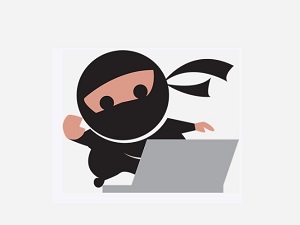
These are a few of the highlights in our webinar, Online Safety & Security Family Edition, on how to teach your children about online risks and protect your devices from viruses and malware.
It's really interesting that the Internet has the potential to cause harm to ourselves and to other people, yet we have very little rules in place to control it. We don't have the same type of expectation of online security as we do some of the other things that we have in our society that could be harmful, such as driving a car. We have very few things around to actually protect ourselves and our children about what's actually happening online. Your children are at risk, even when at home and when you’re there. Empowering kids to not get into trouble online is to educate them on what exactly those dangers are.
Part of the problem is that the Internet is in essence a little bit like the Wild Wild West - we have very few controls or rules in place and just like the cowboys of that era, you have to keep your guard up and be prepared for any attack. The challenge is in societies where they have put controls in place, then people feel like their freedom is limited and they cannot see or say what they want online. So there is a very fine line with keeping the internet open for free communications, but also how to keep it safe.
What are the major concerns to be prepared for? Here are the most prevalent:
- Viruses, malware, and ransomware
- Online scams
- Hackers
- Oversharing
- Bullies and trolls
- Predators
Another concern is privacy. Here are some interesting statistics of how internet users have been affected:
- 21% have had a social media account hacked or taken over by someone else without their permission
- 11% have had personal information stolen like their SSN, credit card, or banking information
- 41% of children aged 8-17 had their profile set so that it was visible to anyone
- 1 in 5 people have had their social networks or email compromised by hackers
So how do we protect ourselves from online attacks? Here are the top 5 recommendations:
- Complex passwords
- Install firewall
- Install anti-virus software
- Install anti-spyware software
- Browser security settings
This and a lot more was covered in our Online Safety & Security Family Edition webinar:


